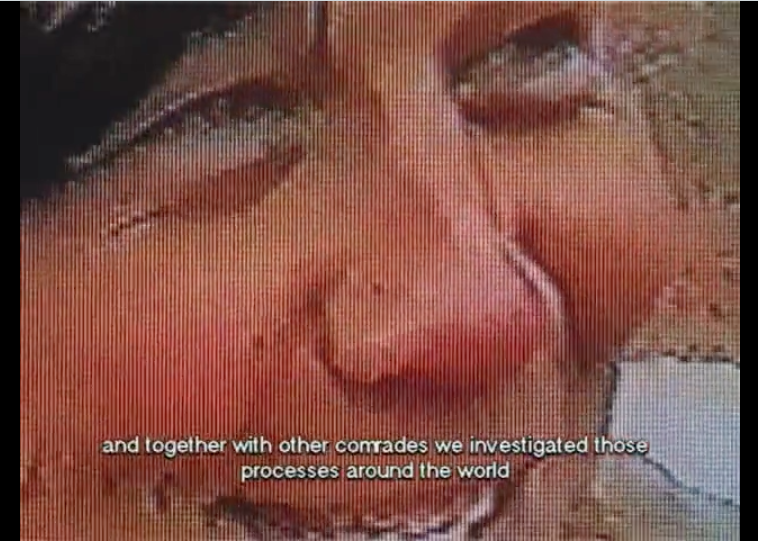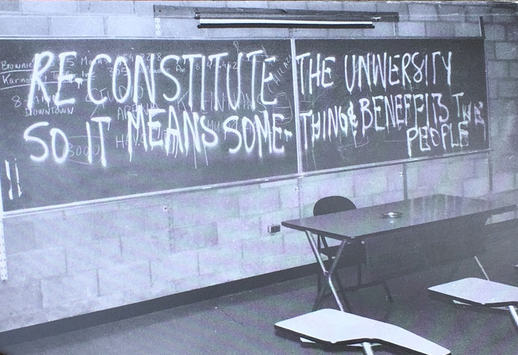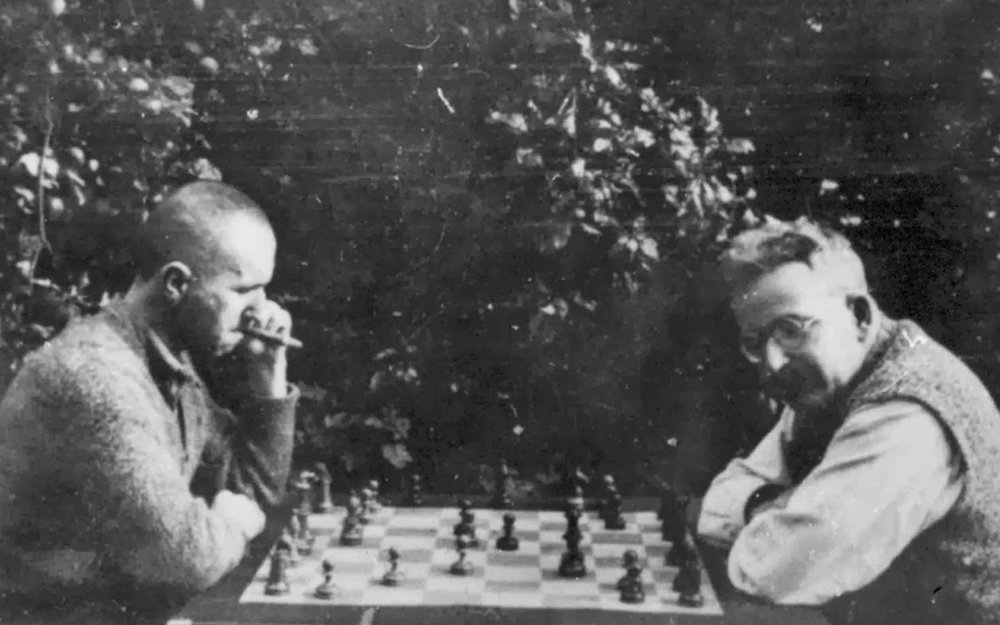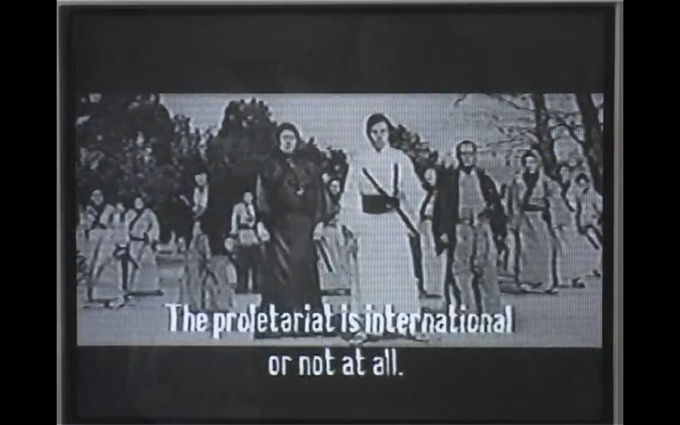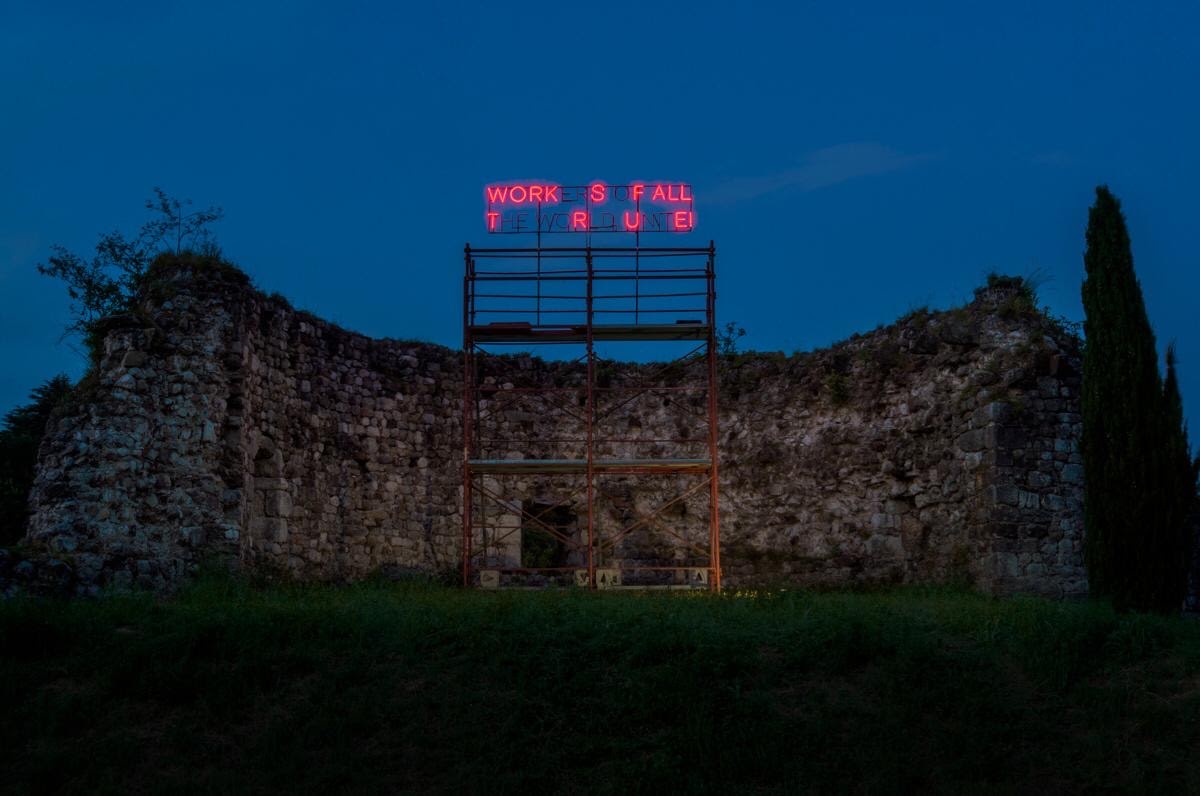MARCH 01
Our inaugural print edition occupies the first issue of October in order to reopen an inquiry into the relationship between revolutionary practice, theoretical inquiry and artistic innovation in our time. Edited by Sarrita Hunn and James McAnally, contributors additionally include Taylor Renee Aldridge, Imani Jacqueline Brown, Paloma Checa-Gismero, Tom Clark and Susannah Haslam (adpe), Nora Khan, Warren Neidich, Parsa Sanjana Sajid, Zoé Samudzi, Patrick Scorese, and Andrea Steves.
Black Ecologies: an opening, an offering
“In what I am calling the weather, antiblackness is pervasive as climate. The weather necessitates changeability and improvisation; it is the atmospheric condition of time and place; it produces new ecologies.” – Christina Sharpe
October, November and March: How has the weather changed? part 1
- Andrea Steves
- Gelare Khoshgozaran
- James McAnally
- Nora N. Khan
- Sarrita Hunn
- Serubiri Moses
- Zoé Samudzi
- Public Actions
- Publication
- MARCH 01
Held online December 12, 2020, this roundtable discussion on “art & strategy” brought together perspectives from Nora N. Khan, Serubiri Moses, Zoé Samudzi, Andrea Steves, MARCH founders Sarrita Hunn and James McAnally, and was moderated by Gelare Khoshgozaran with Human Resources (and thanks to Hugo Servantes) in Los Angeles.
October, November and March: How has the weather changed? part 2
- Andrea Steves
- Gelare Khoshgozaran
- James McAnally
- Nora N. Khan
- Sarrita Hunn
- Serubiri Moses
- Zoé Samudzi
- Public Actions
- Publication
- MARCH 01
Can publication (the act of making public) be an act of protest (public making)?
Dark Study: Within, Below and Alongside
“How much of the academy’s libidinal political economy is predicated on the fantasy of a livable (individual) intellectual life?” – Fred Moten and Stefano Harney
October, November and MARCH: How Has the Weather Changed?
A Roundtable Discussion on Art & Strategy
Saturday, December 12 @ 1PM PST/4pm EST/9pm GMT
The conversation brings together perspectives from Nora N. Khan, Serubiri Moses, Zoé Samudzi, Andrea Steves, MARCH founders Sarrita Hunn and James McAnally, and is moderated by Gelare Khoshgozaran with Human Resources for the occasion of MARCH: a journal of art & strategy’s inaugural print edition.
Works Fall: On Ryts Monet and Ruins
“Capitalism is what is left when beliefs have collapsed at the level of ritual or symbolic elaboration, and all that is left is the consumer-spectator, trudging through the ruins and the relics.” – Mark Fisher
Works Fall: Su Ryts Monet e le Rovine
“Il capitalismo è quel che resta quando ogni ideale è collassato allo stato di elaborazione simbolica o rituale: il risultato è un consumatore-spettatore che arranca tra ruderi e rovine.” – Mark Fisher

